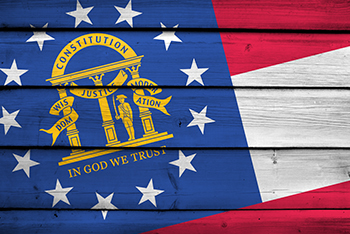On the radar
Hey Robot, Go Find the Law on This
 People can ask their phones where to find a nice Italian restaurant. In the movie “Her” (2013), Joaquin Phoenix’s character falls in love with the artificial intelligence behind his cell phone, revealed through the voice of Scarlet Johansson, an unlikely romance that has probably occurred in real life somewhere.
People can ask their phones where to find a nice Italian restaurant. In the movie “Her” (2013), Joaquin Phoenix’s character falls in love with the artificial intelligence behind his cell phone, revealed through the voice of Scarlet Johansson, an unlikely romance that has probably occurred in real life somewhere.
Now the world’s largest law firm, Dentons, is investing in technology that allows “thinking computers” to do legal research normally done by associates.
Dentons is financially backing a start-up company, ROSS Intelligence Inc., that is developing a legal advisor application powered by IBM’s “Watson,” known as the talking computer that crushed its human competitors in the show Jeopardy, hosted by Alex Trebek.
Reportedly, other major U.S.-based law firms are testing the program, which currently focuses on bankruptcy law.
Source: The Globe and Mail
By the Numbers
228
– The number of years since the Founding Fathers signed the U.S. Constitution on Sept. 17, 1787. Thirty-nine delegates from 12 original states signed the document, establishing the framework of the U.S. Government and the rights and freedoms of the people (it was ratified in 1788). Americans added the Bill of Rights in 1791 through the first 10 amendments.
Interesting fact: At 81, Ben Franklin, Pennsylvania, was the oldest delegate at the Constitutional Convention. New Jersey’s Jonathan Dayton was the youngest at 26.
 Sept. 17 is recognized as National Constitution Day.
Sept. 17 is recognized as National Constitution Day.
Source: National Constitution Center
Out There
Menominee Tribe Says Yes to Pot
Last month, members of the Menominee Indian Tribe in Wisconsin passed an advisory vote to legalize marijuana for recreational and medicinal purposes on its 358-square mile reservation north of Shawano. Tribal leaders must make the final call.
Although marijuana is illegal in Wisconsin, the state generally does not have criminal jurisdiction on the Menominee reservation.
The federal government has jurisdiction to enforce federal laws that prohibit controlled substances, but the U.S. Department of Justice has indicated that it won’t, minus a few exceptions, prosecute tribes for growing, selling, or using marijuana on tribal land (or persons in states where recreational marijuana use is legal, currently Colorado, Washington, Oregon, and Alaska).
This federal policy could change, of course, when a new President takes office in 2017. In short, this is a weedy issue. Stay tuned.
Source: Milwaukee Journal Sentinel
Tech Tip
The Ultimate Tech Tip
Go to the 2015 Wisconsin Solo & Small Firm Conference (WSSFC), Oct. 22-24 at the Kalahari Resort in Wisconsin Dells. With a whole track dedicated to legal technology, you will surely find countless tech tips to keep you moving in this fast-paced world. Well, at least 50, based on “50 Tips in 50 Minutes,” a program with presentations from five heavy hitters in the legal technology world.
Visit wssfc.org for the entire schedule, or to register.
 Good Ideas
Good Ideas
That’s My Code of Annotated Statutes!
The State of Georgia is suing a nonprofit organization for publishing the Official Code of Georgia Annotated, a compilation of the Peach State’s statutes with annotations.
Georgia alleges that public.resource.org is violating copyright laws by publishing the annotated version of Georgia’s code, which is published by a third-party and must be purchased. Only the text of Georgia’s statutes is free.
Here in Wisconsin, the Wisconsin Statutes & Annotations, which lists primary and secondary source information – including Wisconsin Lawyer articles – are free and accessible by anyone with Internet access through the Wisconsin State Legislature’s website.
Source: ABA Journal
Quotable
“Is your name Westlaw? Because you have everything I’ve been looking for.”
 – An entry by one witty law professor at Drexel University, responding to Above the Law’s Twitter call for cheesy lawyer pick-up lines.
– An entry by one witty law professor at Drexel University, responding to Above the Law’s Twitter call for cheesy lawyer pick-up lines.
Speaking of pick-up lines, the lawsuits in the Ashley Madison website breach debacle have started.
Two law firms in Dallas have filed class-action lawsuits alleging the company behind the Ashley Madison website, a place for married persons to seek out affairs, failed to protect their confidentiality even though some users paid to have their online profiles deleted.
In August, a group of hackers released millions of client names, financial information, and emails, making good on an earlier threat to release the data if the site was not removed.
Source: CBS – Dallas/Fort Worth
